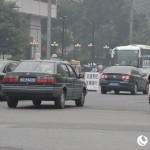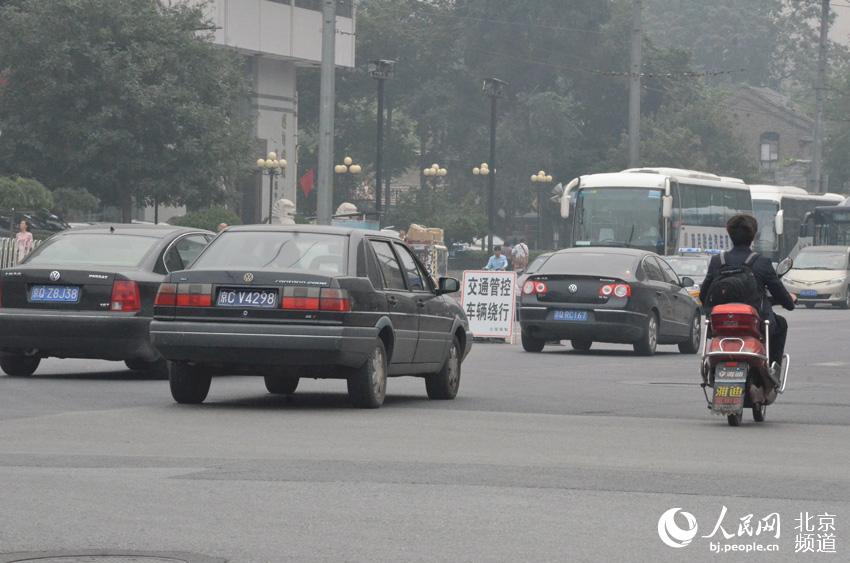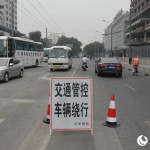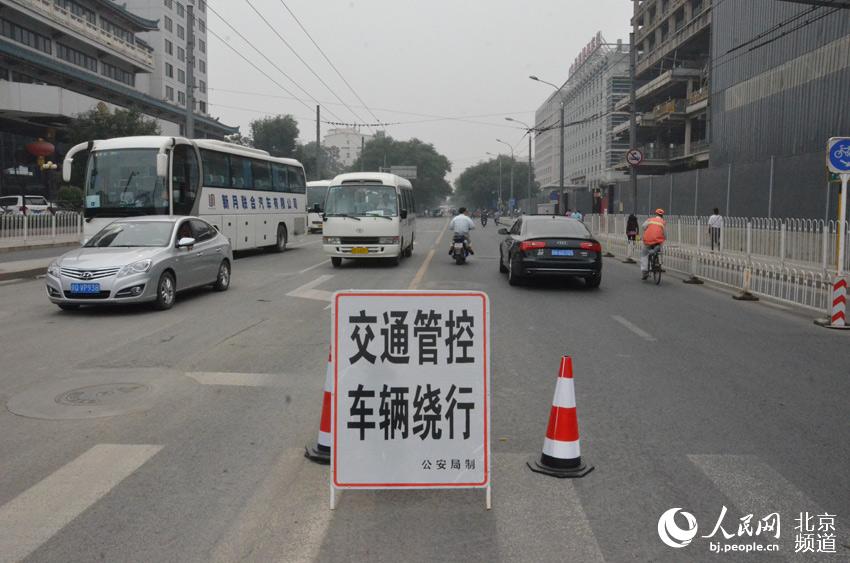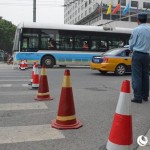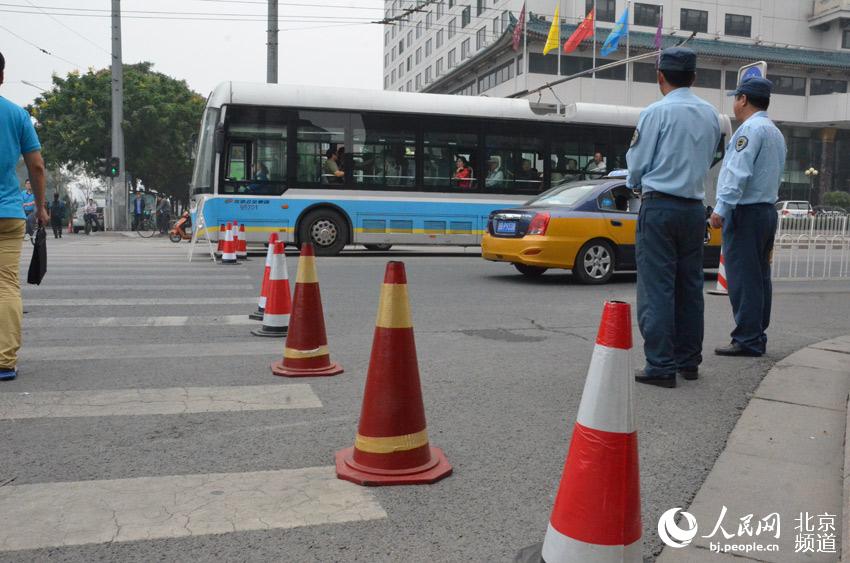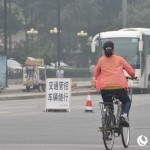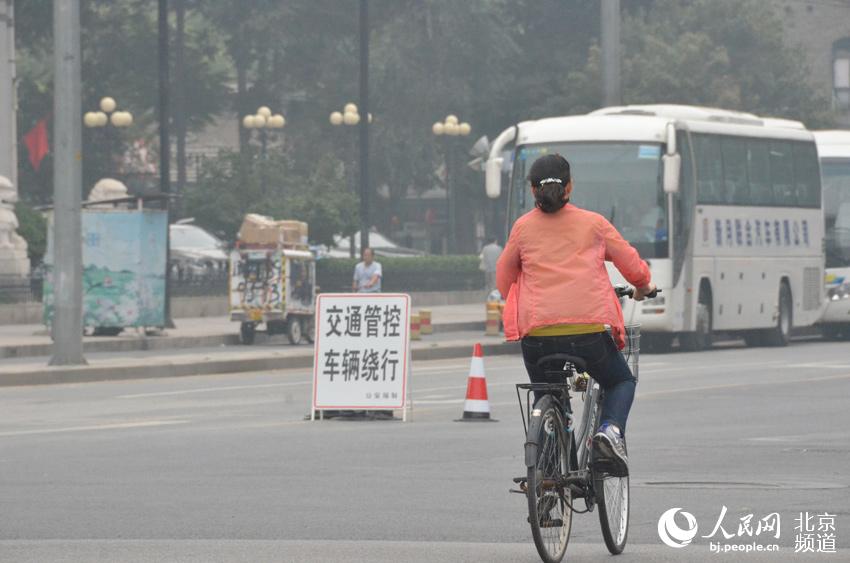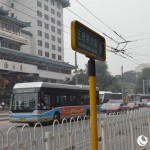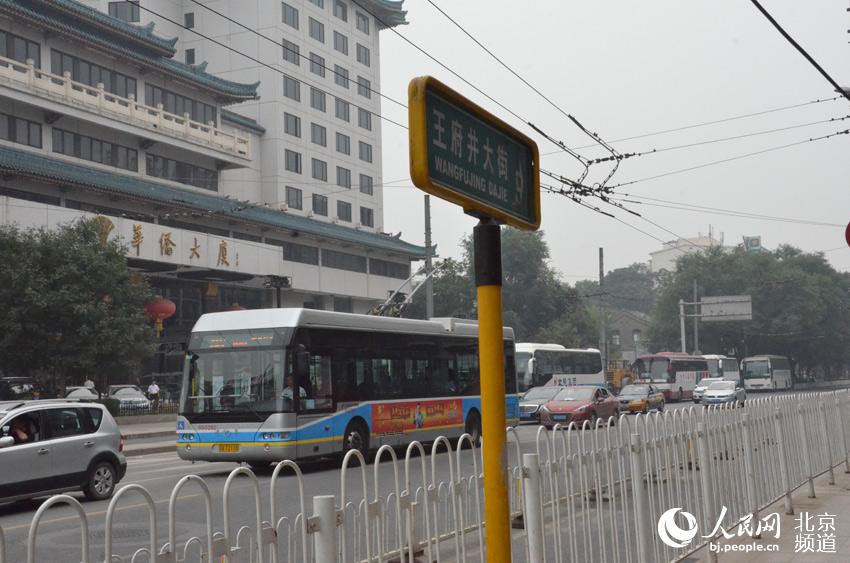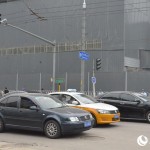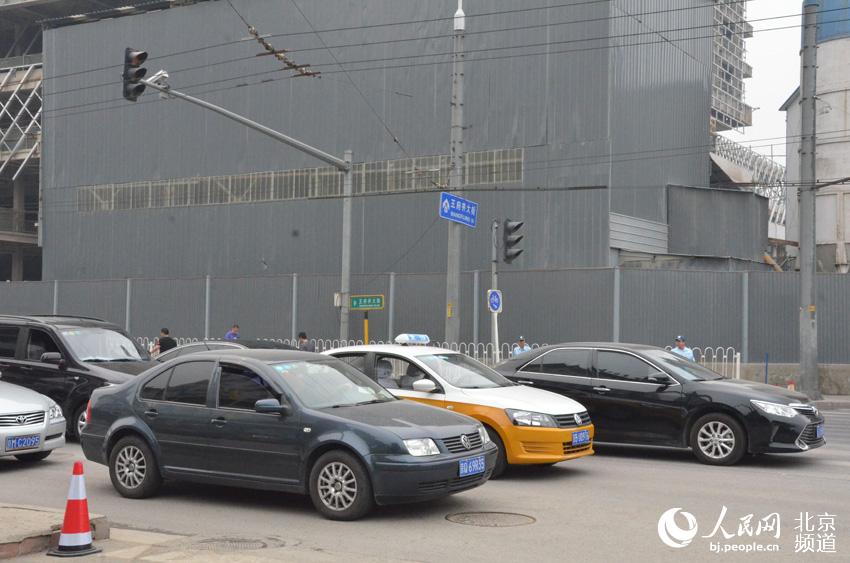Drivers in Beijing know that at any moment in time, car restrictions can be put into place that restrict car use in the capital by about half. That’s what happened in preparation for the September 3 military parade, and for important world events like the APEC summit or the 2008 Summer Olympic Games. But when left to their own devices, could Beijing drivers be encouraged to stop using their cars?
Last year, Chinese drivers celebrated World Car Free Day with traffic jams around the country. For this year, authorities decided to do things a little differently: if you can’t persuade a large number of drivers to go car-free, then at least you can isolate certain city street to be free of cars. It’s a more humble goal, but still in keeping with the spirit of World Car Free Day.
CCTV America reports that 170 Chinese cities got involved on World Car Free Day this year with campaigns to promote environmental protection while certain cities like Chongqing imposed traffic controls. Specifically in Beijing, three areas were designated as car-free zones on Tuesday from 9am to 4pm: Wangfujing Boulevard, Nanluoguxiang, and Olympic Center Road.
Beijing drivers were advocated to make detours from these three car-free zones with signs saying “Traffic control, vehicle detour”. However, unlike preparations for the September 3 military parade in which martial law was imposed on the city’s popular Sanlitun area, these car-free zones were only a suggestion made to Beijing drivers and not enforced.
The result was that this year’s World Car Free Day turned out much like last year’s in China. As noted by a reporter for People’s Daily Online, there was no reduction in cars in Beijing’s three designated car-free zones with traffic said to be the same as normal (seen in the gallery above). Meanwhile, the Beijing Transportation Committee said the city’s traffic index during morning rush hour at 8:10am was 8, signifying heavy traffic.
And while much of the focus of World Car Free Day is help advocate drivers to lessen the impact that cars have on the environment, Beijing’s air quality was quite poor, averaging an AQI level over 150, much like conditions during Sunday’s marathon at which a number of heart attacks were reported.


